Artist:
Willie Bryant And His Orchestra
Title:
The Chronological Classics: 1935-1936
Year Of Release:
1994
Label:
Classics[768]
Genre:
Jazz, Swing
Quality:
FLAC (tracks + .cue,log,scans)
Total Time: 67:22
Total Size: 227 MB(+3%)
WebSite:
Album Preview
Tracklist01. Throwing' Stones At The Sun (3:02)
02. It's Over Because We're Through (3:38)
03. A Viper's Moan (3:26)
04. Chimes At The Meeting (3:01)
05. Rigamarole (2:36)
06. 'Long About Midnight (3:03)
07. The Sheik (2:54)
08. Jerry The Junker (2:49)
09. The Voice Of Old Man River (3:09)
10. Steak And Potatoes (3:08)
11. Long Gone From Bowling Green (2:51)
12. Liza (2:59)
13. Is It True What They Say About Dixie? (2:18)
14. All My Life (3:26)
15. The Right Somebody To Love (3:14)
16. The Glory Of Love (3:32)
17. Ride, Red, Ride (2:31)
18. Moonrise On The Lowlands (3:38)
19. Mary Had A Little Lamb (3:17)
20. I Like Bananas (Because They Have No Bones) (2:47)
21. Cross Patch (2:41)
22. I'm Grateful To You (3:22)
Don't let this one fall through the cracks! Willie Bryant's Orchestra was an exceptionally fine big band, teeming with skilled jazz musicians during the mid-'30s Bryant was born in New Orleans and raised in Chicago. By 1926 he was dancing professionally and eventually appeared in duet performance with Bessie Smith. His band came together towards the end of 1934, and by the January 4, 1935 they were making great records for the Victor label. Teddy Wilson and Cozy Cole were the backbone, and recognizably strong players like Benny Carter and young Ben Webster greatly fortified the ranks. While each solo by Ben Webster is priceless, you'll get a lot out of meeting the rest of the guys in the band, like Robert "Mack" Horton and his husky, growling trombone, outrageously featured at the beginning of "The Sheik." Bryant's sense of theater was highly developed, and it served him well during the more topical numbers. Of all the humorous routines ever created in imitation of a revival meeting, one of the very funniest and most solidly swung is "Chimes at the Meeting." Bryant impersonates an oily, opportunistic preacher who is obviously only interested in the contents of the collection plate. Calling each member of the congregation by name, he is soon inventing all kinds of characters while pointedly pronouncing nicknames for each soloist in the band. At one point Bryant, lending his voice to the imaginary individual "Brother Goldberg," sings an imaginative scat vocal built upon the time-honored syllables "Oy" and "Yoy." The bizarre vaudeville patter fits perfectly over an exciting big band stomp that makes it very difficult to sit still! "Steak and Potatoes" is a hilarious ode to the enigma of Love versus Food. Willie makes it clear that he would always opt for a table full of greasy, hot goodies rather than messing with Love, even if it does "make you feel like a thousand Mickey Mouses running up and down your spine." Again, the combination of top-notch big band swing and a humorous vocal line is irresistible! Accessible to an even wider audience on Victor's affordable Bluebird series during the year 1936, Bryant continued to use this same formula with great success. There is a flute solo -- quite rare in jazz back then -- by Charles Frazier during "The Right Somebody to Love," which has a funky vocal by trumpeter Jack Butler. If Bryant's polished southern drawl sounds a bit conspicuous at times, it definitely conjures up a minstrel show when combined with Butler's enthusiastic clowning on "I Like Bananas (Because They Have No Bones)." Taft Jordan sings up a passion during "All My Life," a song made famous during this same time period by Thomas "Fats" Waller. "Cross Patch" was also a hit for Waller, but Bryant's band cooks it hotter, with a beefy baritone sax intro by Stanley Payne. This music really grows on you. It occupies a sort of limbo between the formative swing of the early 1930s and the fully mature jazz of the early 1940s. Bryant only made a handful of records after 1936 -- following one Decca date in '38, economic pressures forced him to take his band apart. Given the smooth sound of his singing and speaking voice, it is not surprising that Willie went on to work as an emcee, a deejay and even in television. He did lead a band in Harlem during the year 1946, and after hearing these wonderful sides from the middle 1930s, you might ask yourself, did the 1946 Bryant band make any records? This calls for further investigation.
Exact Audio Copy V1.0 beta 3 from 29. August 2011
EAC extraction logfile from 27. August 2012, 18:59
Willie Bryant And His Orchestra / 1935-1936
Used drive : HL-DT-STDVDRAM GT20N Adapter: 2 ID: 0
Read mode : Secure
Utilize accurate stream : Yes
Defeat audio cache : Yes
Make use of C2 pointers : No
Read offset correction : 667
Overread into Lead-In and Lead-Out : No
Fill up missing offset samples with silence : Yes
Delete leading and trailing silent blocks : No
Null samples used in CRC calculations : Yes
Used interface : Native Win32 interface for Win NT & 2000
Gap handling : Appended to previous track
Used output format : User Defined Encoder
Selected bitrate : 1024 kBit/s
Quality : High
Add ID3 tag : No
Command line compressor : C:\Program Files (x86)\Exact Audio Copy\Flac\flac.exe
Additional command line options : -8 -V -T "ARTIST=%artist%" -T "TITLE=%title%" -T "ALBUM=%albumtitle%" -T "DATE=%year%" -T "TRACKNUMBER=%tracknr%" -T "GENRE=%genre%" -T "PERFORMER=%albuminterpret%" -T "COMPOSER=%composer%" %haslyrics%--tag-from-file=LYRICS="%lyricsfile%"%haslyrics% -T "ALBUMARTIST=%albumartist%" -T "DISCNUMBER=%cdnumber%" -T "TOTALDISCS=%totalcds%" -T "TOTALTRACKS=%numtracks%" -T "COMMENT=%comment%" %source% -o %dest%
TOC of the extracted CD
Track | Start | Length | Start sector | End sector
---------------------------------------------------------
1 | 0:00.32 | 3:02.00 | 32 | 13681
2 | 3:02.32 | 3:38.00 | 13682 | 30031
3 | 6:40.32 | 3:25.58 | 30032 | 45464
4 | 10:06.15 | 3:01.25 | 45465 | 59064
5 | 13:07.40 | 2:35.57 | 59065 | 70746
6 | 15:43.22 | 3:03.00 | 70747 | 84471
7 | 18:46.22 | 2:53.40 | 84472 | 97486
8 | 21:39.62 | 2:48.60 | 97487 | 110146
9 | 24:28.47 | 3:08.73 | 110147 | 124319
10 | 27:37.45 | 3:08.30 | 124320 | 138449
11 | 30:46.00 | 2:51.22 | 138450 | 151296
12 | 33:37.22 | 2:58.48 | 151297 | 164694
13 | 36:35.70 | 2:17.62 | 164695 | 175031
14 | 38:53.57 | 3:26.15 | 175032 | 190496
15 | 42:19.72 | 3:14.00 | 190497 | 205046
16 | 45:33.72 | 3:32.08 | 205047 | 220954
17 | 49:06.05 | 2:31.15 | 220955 | 232294
18 | 51:37.20 | 3:37.67 | 232295 | 248636
19 | 55:15.12 | 3:16.63 | 248637 | 263399
20 | 58:32.00 | 2:47.25 | 263400 | 275949
21 | 61:19.25 | 2:41.02 | 275950 | 288026
22 | 64:00.27 | 3:22.05 | 288027 | 303181
Track 1
Filename E:\Willie Bryant - 1935-1936 (1994) [FLAC] {Chronological Classics 768}\01 - Throwing' Stones At The Sun.wav
Pre-gap length 0:00:02.42
Peak level 87.2 %
Extraction speed 2.3 X
Track quality 100.0 %
Test CRC 9B064851
Copy CRC 9B064851
Accurately ripped (confidence 1) [2A9C8FA5] (AR v2)
Copy OK
Track 2
Filename E:\Willie Bryant - 1935-1936 (1994) [FLAC] {Chronological Classics 768}\02 - It's Over Because We're Through.wav
Pre-gap length 0:00:01.00
Peak level 57.8 %
Extraction speed 2.6 X
Track quality 100.0 %
Test CRC A2DEBD9D
Copy CRC A2DEBD9D
Accurately ripped (confidence 1) [8848895E] (AR v2)
Copy OK
Track 3
Filename E:\Willie Bryant - 1935-1936 (1994) [FLAC] {Chronological Classics 768}\03 - A Viper's Moan.wav
Pre-gap length 0:00:01.62
Peak level 74.2 %
Extraction speed 2.7 X
Track quality 100.0 %
Test CRC 02EC7349
Copy CRC 02EC7349
Accurately ripped (confidence 1) [596BA1D8] (AR v2)
Copy OK
Track 4
Filename E:\Willie Bryant - 1935-1936 (1994) [FLAC] {Chronological Classics 768}\04 - Chimes At The Meeting.wav
Pre-gap length 0:00:01.00
Peak level 89.3 %
Extraction speed 2.9 X
Track quality 100.0 %
Test CRC 27EC449F
Copy CRC 27EC449F
Accurately ripped (confidence 1) [734E68BD] (AR v2)
Copy OK
Track 5
Filename E:\Willie Bryant - 1935-1936 (1994) [FLAC] {Chronological Classics 768}\05 - Rigamarole.wav
Pre-gap length 0:00:01.30
Peak level 77.4 %
Extraction speed 2.9 X
Track quality 100.0 %
Test CRC 174C7162
Copy CRC 174C7162
Accurately ripped (confidence 1) [884FE5C0] (AR v2)
Copy OK
Track 6
Filename E:\Willie Bryant - 1935-1936 (1994) [FLAC] {Chronological Classics 768}\06 - 'Long About Midnight.wav
Pre-gap length 0:00:01.00
Peak level 73.6 %
Extraction speed 3.2 X
Track quality 100.0 %
Test CRC 3A22E2F1
Copy CRC 3A22E2F1
Accurately ripped (confidence 1) [E4DD7118] (AR v2)
Copy OK
Track 7
Filename E:\Willie Bryant - 1935-1936 (1994) [FLAC] {Chronological Classics 768}\07 - The Sheik.wav
Pre-gap length 0:00:01.20
Peak level 80.7 %
Extraction speed 3.2 X
Track quality 100.0 %
Test CRC 494F49D0
Copy CRC 494F49D0
Accurately ripped (confidence 1) [31037237] (AR v2)
Copy OK
Track 8
Filename E:\Willie Bryant - 1935-1936 (1994) [FLAC] {Chronological Classics 768}\08 - Jerry The Junker.wav
Pre-gap length 0:00:01.29
Peak level 76.2 %
Extraction speed 3.4 X
Track quality 100.0 %
Test CRC 3107E101
Copy CRC 3107E101
Accurately ripped (confidence 1) [123A1FCF] (AR v2)
Copy OK
Track 9
Filename E:\Willie Bryant - 1935-1936 (1994) [FLAC] {Chronological Classics 768}\09 - The Voice Of Old Man River.wav
Pre-gap length 0:00:01.76
Peak level 80.8 %
Extraction speed 3.5 X
Track quality 100.0 %
Test CRC 171C2155
Copy CRC 171C2155
Accurately ripped (confidence 1) [DCF02BF8] (AR v2)
Copy OK
Track 10
Filename E:\Willie Bryant - 1935-1936 (1994) [FLAC] {Chronological Classics 768}\10 - Steak And Potatoes.wav
Pre-gap length 0:00:01.66
Peak level 83.3 %
Extraction speed 3.7 X
Track quality 100.0 %
Test CRC D0DC2866
Copy CRC D0DC2866
Accurately ripped (confidence 1) [C763F0AF] (AR v2)
Copy OK
Track 11
Filename E:\Willie Bryant - 1935-1936 (1994) [FLAC] {Chronological Classics 768}\11 - Long Gone From Bowling Green.wav
Pre-gap length 0:00:01.77
Peak level 81.3 %
Extraction speed 2.4 X
Track quality 99.9 %
Test CRC D3B1A852
Copy CRC D3B1A852
Accurately ripped (confidence 1) [9556878A] (AR v2)
Copy OK
Track 12
Filename E:\Willie Bryant - 1935-1936 (1994) [FLAC] {Chronological Classics 768}\12 - Liza.wav
Pre-gap length 0:00:01.46
Peak level 90.9 %
Extraction speed 1.6 X
Track quality 99.9 %
Test CRC 8AE2EBBF
Copy CRC 8AE2EBBF
Accurately ripped (confidence 1) [9D0C7F62] (AR v2)
Copy OK
Track 13
Filename E:\Willie Bryant - 1935-1936 (1994) [FLAC] {Chronological Classics 768}\13 - It's True What They Say About Dixie.wav
Peak level 86.2 %
Extraction speed 1.9 X
Track quality 100.0 %
Test CRC EF54CF54
Copy CRC EF54CF54
Accurately ripped (confidence 1) [E6E41A86] (AR v2)
Copy OK
Track 14
Filename E:\Willie Bryant - 1935-1936 (1994) [FLAC] {Chronological Classics 768}\14 - All My Life.wav
Pre-gap length 0:00:01.33
Peak level 71.2 %
Extraction speed 1.8 X
Track quality 99.9 %
Test CRC 4EFA0133
Copy CRC 4EFA0133
Accurately ripped (confidence 1) [78AF6A92] (AR v2)
Copy OK
Track 15
Filename E:\Willie Bryant - 1935-1936 (1994) [FLAC] {Chronological Classics 768}\15 - The Right Somebody To Love.wav
Pre-gap length 0:00:01.13
Peak level 92.9 %
Extraction speed 2.1 X
Track quality 100.0 %
Test CRC 864D4601
Copy CRC 864D4601
Accurately ripped (confidence 1) [B3F3E7B7] (AR v2)
Copy OK
Track 16
Filename E:\Willie Bryant - 1935-1936 (1994) [FLAC] {Chronological Classics 768}\16 - The Glory Of Love.wav
Pre-gap length 0:00:01.00
Peak level 83.7 %
Extraction speed 2.2 X
Track quality 100.0 %
Test CRC 54BD1933
Copy CRC 54BD1933
Accurately ripped (confidence 1) [D79583FD] (AR v2)
Copy OK
Track 17
Filename E:\Willie Bryant - 1935-1936 (1994) [FLAC] {Chronological Classics 768}\17 - Ride, Red, Ride.wav
Pre-gap length 0:00:01.70
Peak level 69.5 %
Extraction speed 2.2 X
Track quality 100.0 %
Test CRC 6DEE763F
Copy CRC 6DEE763F
Accurately ripped (confidence 1) [BFF6C7A2] (AR v2)
Copy OK
Track 18
Filename E:\Willie Bryant - 1935-1936 (1994) [FLAC] {Chronological Classics 768}\18 - Moonrise On The Lowlands.wav
Peak level 90.9 %
Extraction speed 2.4 X
Track quality 100.0 %
Test CRC BC98FC25
Copy CRC BC98FC25
Accurately ripped (confidence 1) [154728F3] (AR v2)
Copy OK
Track 19
Filename E:\Willie Bryant - 1935-1936 (1994) [FLAC] {Chronological Classics 768}\19 - Mary Had A Little Lamb.wav
Pre-gap length 0:00:01.00
Peak level 76.0 %
Extraction speed 2.0 X
Track quality 99.9 %
Test CRC 5008CB1E
Copy CRC 5008CB1E
Accurately ripped (confidence 1) [12921C5B] (AR v2)
Copy OK
Track 20
Filename E:\Willie Bryant - 1935-1936 (1994) [FLAC] {Chronological Classics 768}\20 - I Like Bananas (Because They Have No Bones).wav
Pre-gap length 0:00:01.24
Peak level 84.1 %
Extraction speed 1.9 X
Track quality 99.9 %
Test CRC FD9C2653
Copy CRC FD9C2653
Accurately ripped (confidence 1) [2DBC941C] (AR v2)
Copy OK
Track 21
Filename E:\Willie Bryant - 1935-1936 (1994) [FLAC] {Chronological Classics 768}\21 - Cross Patch.wav
Pre-gap length 0:00:01.00
Peak level 95.8 %
Extraction speed 2.0 X
Track quality 99.9 %
Test CRC FD756BC0
Copy CRC FD756BC0
Accurately ripped (confidence 1) [C161FF21] (AR v2)
Copy OK
Track 22
Filename E:\Willie Bryant - 1935-1936 (1994) [FLAC] {Chronological Classics 768}\22 - I'm Grateful To You.wav
Peak level 77.5 %
Extraction speed 2.5 X
Track quality 100.0 %
Test CRC 54E2E1E4
Copy CRC 54E2E1E4
Accurately ripped (confidence 1) [E9BA696E] (AR v2)
Copy OK
All tracks accurately ripped
No errors occurred
End of status report
==== Log checksum E0D4CB84850B2FD08FDDA8921F730FF1D4914E9F99988D0B73C7CBB72035D209 ====
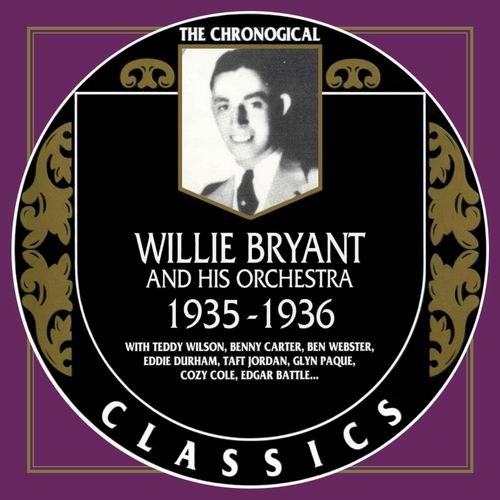

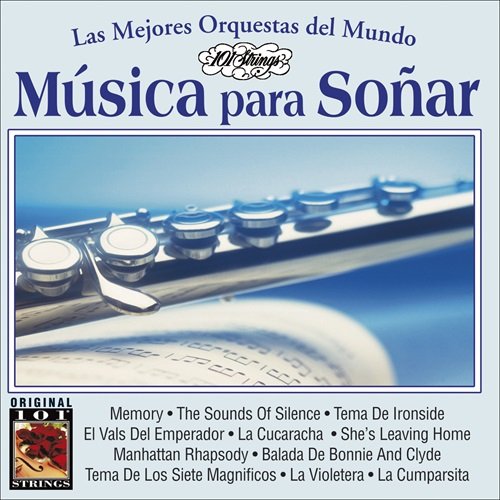

![Æthenor - Hazel (2016) [Hi-Res] Æthenor - Hazel (2016) [Hi-Res]](https://img.israbox.com/img/2026-02/21/u8vm4dsf9wrvmhpl4zso2e791.jpg)
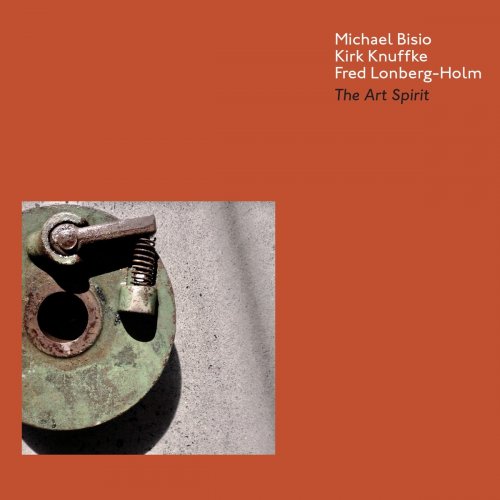
![Marius Neset - Time to Live (2026) [Hi-Res] Marius Neset - Time to Live (2026) [Hi-Res]](https://www.dibpic.com/uploads/posts/2026-02/1771945711_folder.jpg)
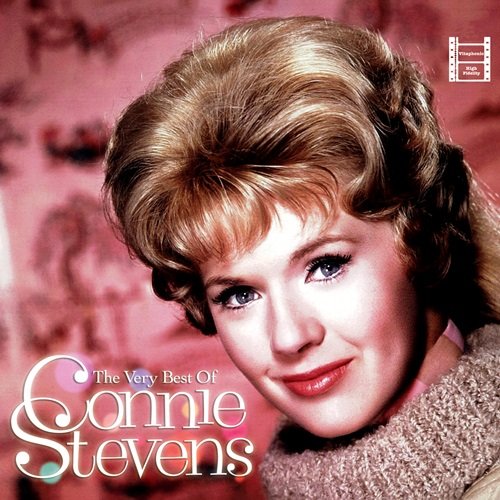
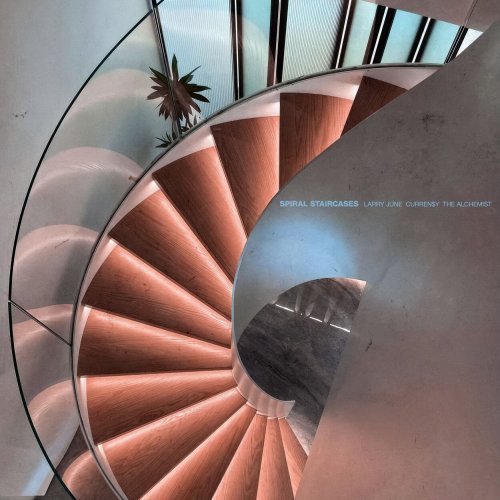
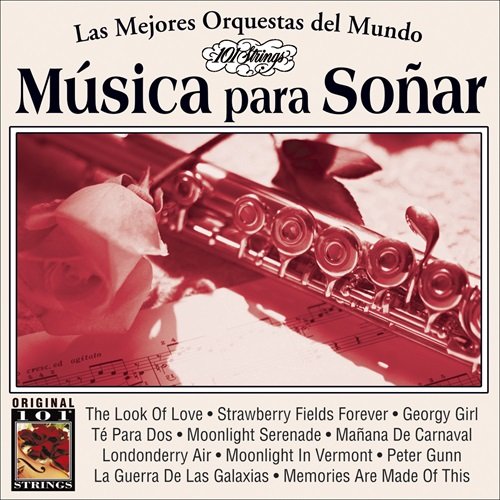
![Sinedades - De par en par (2026) [Hi-Res] Sinedades - De par en par (2026) [Hi-Res]](https://img.israbox.com/img/2026-02/23/k9xyrl2p7m3kmcwozolhfnu7a.jpg)